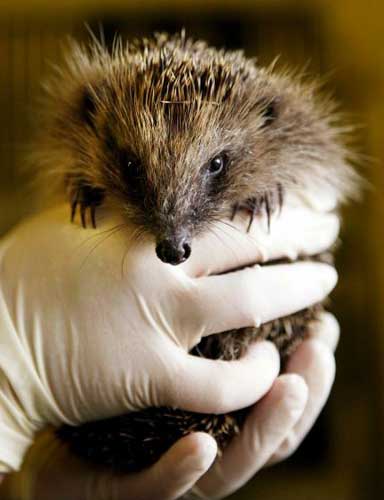Nature: Save the hedgehog – and save the world

After a vintage year in 2007 for nature books, 2008 has been, by comparison, quiet. The late Roger Deakin's Notes from Walnut Tree Farm (Hamish Hamilton, £20) is a diary of thoughts and impressions from his private world, a few acres of field and copse around a farmhouse in Suffolk. While a Gilbert White would have pushed maniacally around his estate observing, asking why, Deakin is the opposite. He is an alert but passive recorder of life's small dramas, always exquisitely described.
Is there anything more to say about birds? Perhaps there is. In Consider the Birds (Allen Lane, £25), Colin Tudge finds an original way of exploring where birds came from (the feather seems to have arrived ready-made), why they are so successful and why there are so many. A master of clear science writing, Tudge throws a state-of-the-art spotlight on every aspect of the bird's life from migration to co-operation. He concludes that birds are not feathered robots but sentient beings: that some, at least, have a slightly dangerous social awareness, including a willingness to make sacrifices to continue the line.
A Prickly Affair (Allen Lane, £14.99) is about zoologist Hugh Warwick's 20-year obsession with hedgehogs. Starting out as a hedgehog radio-tracker, he turned into a kind of roving ambassador for the animal. He sticks up for hedgehogs wherever he goes, as during a proposed cull in the Hebrides, and makes a convincing case that they are "indelibly linked to our sense of the countryside, our childhood, and ourselves". Save the hedgehog and save the world.
The New Naturalist series published by Collins has been growing in fits and starts ever since 1945. It has now reached 108 with a record four titles in 2008. The books are glorious to own: my pick is The Wye Valley (Collins, £45) by George Peterken, a readable and detailed account of a picturesque place.
A World Without Bees (GuardianBooks, £9.99), by Alison Benjamin and Brian McCallum, is a journalistic examination of the crisis faced by the world's master pollinator, the honeybee, and the consequence of its decline. Everything is going wrong for bees: pesticides, parasites, the loss of clover fields and flowery meadows. Oh, and climate change. This year has produced an outstanding identification guide: the Guide to Garden Wildlife (British Wildlife Publishing, £12.95) by Richard Lewington. His work unfolds over 200 pages with text on one side and images on the other. Apart from the art, the book's strength lies in the range of garden wildlife; not just birds and butterflies but spiders, slugs, snails and beetles. If you want a pictorial guide to what lives in your garden, buy this one.
Join our commenting forum
Join thought-provoking conversations, follow other Independent readers and see their replies
Comments
Bookmark popover
Removed from bookmarks